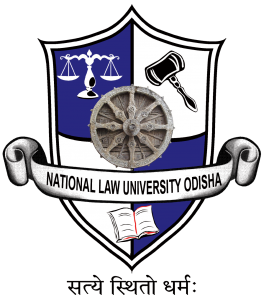INTRODUCTION
Democracy is the zenith of modern civilization evolving as a system of government in which the citizens exercise power directly or elect representatives from among themselves to form a governing body. The democratic republic envisioned by drafters of Indian Constitution idolized a liberal democracy, not merely the rule of the majority as determined by free and fair elections, but also a system of government with checks and balances. These exist in the form of fundamental rights for citizens, protections for minorities and socially disadvantaged groups, relative autonomy for historically and culturally distinct regions, all to be safeguarded by an independent judiciary and a free press. The message conveyed by the drafting committee as we find at the end of the process, relates to the pervasive philosophy of democratic republic which Sir Winston Churchill vivified in matchless words:
“At the bottom of all tributes paid to democracy is the little man, walking into a little booth, with a little pencil, making a little cross on a little bit of paper – no amount of rhetoric or voluminous discussion can possibly diminish the overwhelming importance of the point.”
Under the Constitution this little voter selects representatives who will generate national wealth and use it in the manner laid down by the Directive Principles, while observing Fundamental Rights. The essence of a democracy therefore centers in the system of representation which formalizes a citizen’s concerns and aspirations through candidates who represent them in the politico-legal system. This representation through the process of elections has a significant impact on the Constitution and the legal regime which regulates it. Significantly, issues of legal significance are consistently raised around the ideas of political funding, regulation of political rhetoric or modes of representation in itself.
The Special Edition of the National Law University Odisha Law Journal [NLUOLJ], on the special theme of ‘Election Laws’ aims to foster and enhance discussion on legal issues related to elections, one of the most exciting, contemporary constitutional discourses among scholars, students and legal practitioners. This volume aims to extend its scope beyond the status quo, looking into the future of elections in India in a world of breakneck social, legal, political and technological development.
ABOUT THE JOURNAL
The NLUO Law Journal (ISSN: 2348-8913) is the flagship publication of National Law University Odisha published by Eastern Book Company, Lucknow. An annual peer-reviewed journal aims to encourage legal scholarship in national and international inter-disciplinary legal issues. After the first volume in 2013, three consecutive volumes of the journal were formulated as special issues on ‘Access to Justice’, ‘Child Rights’ and ‘Climate Change’. The last edition was a distinctive and special issue in the memory of legendary Prof. N. R. Madhava Menon. All the special editions focused on topics of substantial contemporary relevance and provided an excellent repository of scholarship in those areas.
SUB-THEMES
We welcome submissions on any of the following sub-themes to enable us to bring out the special issue:
- Representation of Anglo Indians in Parliament
- Post-Poll Alliances and Constitutionality
- Election Manifesto
- Electoral Bonds and Political Funding
- NOTA: Contemporary Relevance
- Electoral Justice and Participation of Under-represented groups
- Regulating Election Campaign on Social Media/Online Platforms
- Model Code of Conduct: Application and Analysis
- Transparency, Disclosure of Assets and Nominations
- Electronic Voting Machine
- Role of Civil Society in Electoral Process
Note: The above sub-themes are only illustrative. NLUO would welcome papers on other topics related to Election Law.
SUBMISSION GUIDELINES
- Submissions can be in the form of long articles, short notes, book reviews. The acceptable word limit should not exceed:
- Long Articles: 8000-10000 words
- Short Notes: 4000-8000 words
- Case Comments/Legislative Comments: 3000 words
- Book Review: 2000-3000 words
- All the word limits mentioned above are exclusive of footnotes. Kindly note that the word limits will be strictly enforced.
- All the submissions must consist of an Abstract of not more than 300 words, main contribution and a declaration of originality. The abstract will not be included in the prescribed word limit.
- A submission can be co-authored by a maximum of two people. Submissions are invited from undergraduate and postgraduate students, academicians, practitioners and research scholars.
Note: The last date for submission is 15th May 2020.
FORMAT AND CITATION GUIDELINES
- Font Type and Size of the main text must be Times New Roman, 12.
- Font Type and Size footnotes must be Calibri, 10.
- Line Spacing of the main text and footnotes must be 1.5, Single respectively.
- Use of headings and Sub-Headings is encouraged. Headings and Sub-Headings should be numbered, should be of the same font type and size as the main text and should be in bold.
- Citations must be in OSCOLA format.
SUBMISSION PROCEDURE
- Authors are requested to send their original, unpublished submissions in .doc/.docx format to nluojournal@nluo.ac.in
- The name of the file must contain Name of the Author(s) + Title of the Submission.
- The submissions must be accompanied by a covering letter bearing the following information:
- Full Name of the Author(s)
- Position / Year of Study
- Institutional Affiliations (if any)
- Contact Details of the Author(s)
- Declaration of Originality of research
FOR ANY QUERY AND CLARIFICATIONS, KINDLY CONTACT:
Editor-in-Chief
Dr. Yogesh Pratap Singh
Email: nluojournal@nluo.ac.in
+91 8392939345
Review Editors
Ms. Rishika Khare
Email: rishika.khare@nluo.ac.in
Ms. Nikita Pattajoshi
Email: nikita@nluo.ac.in







